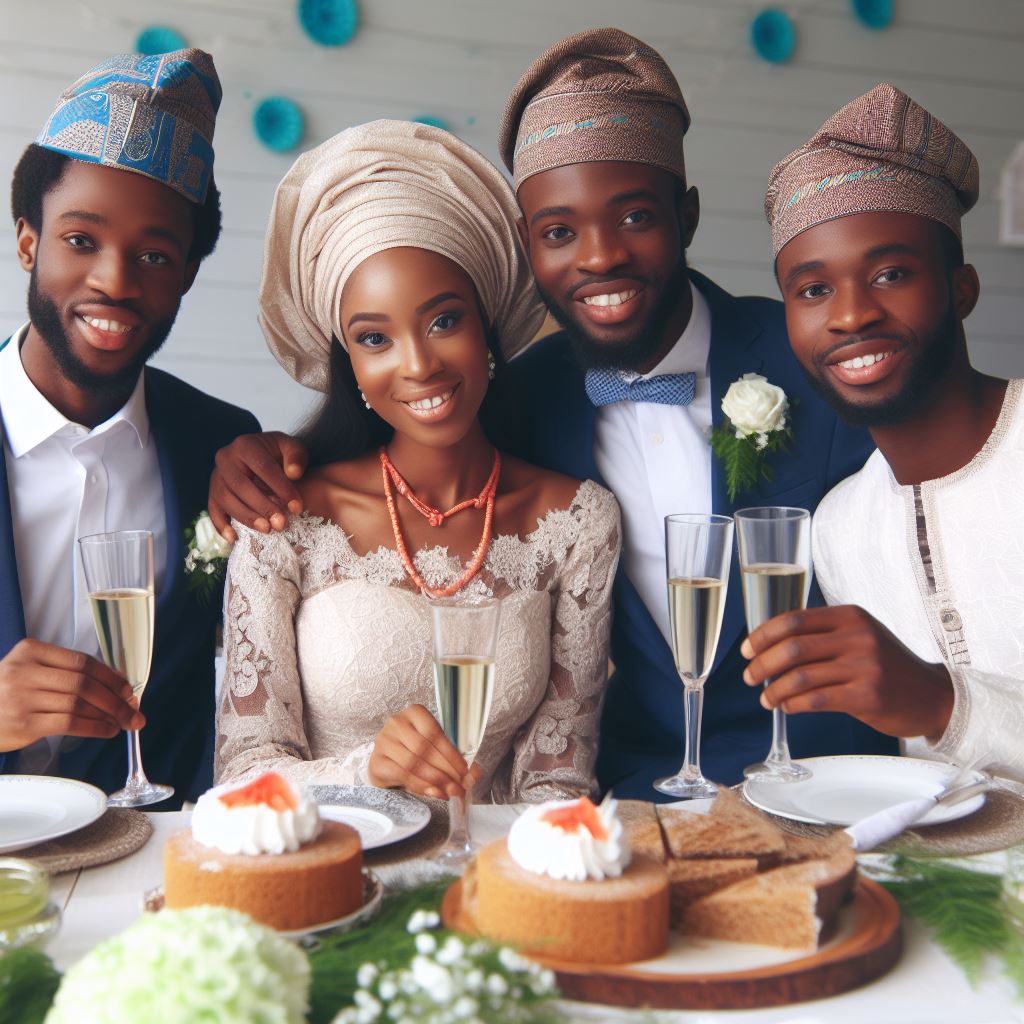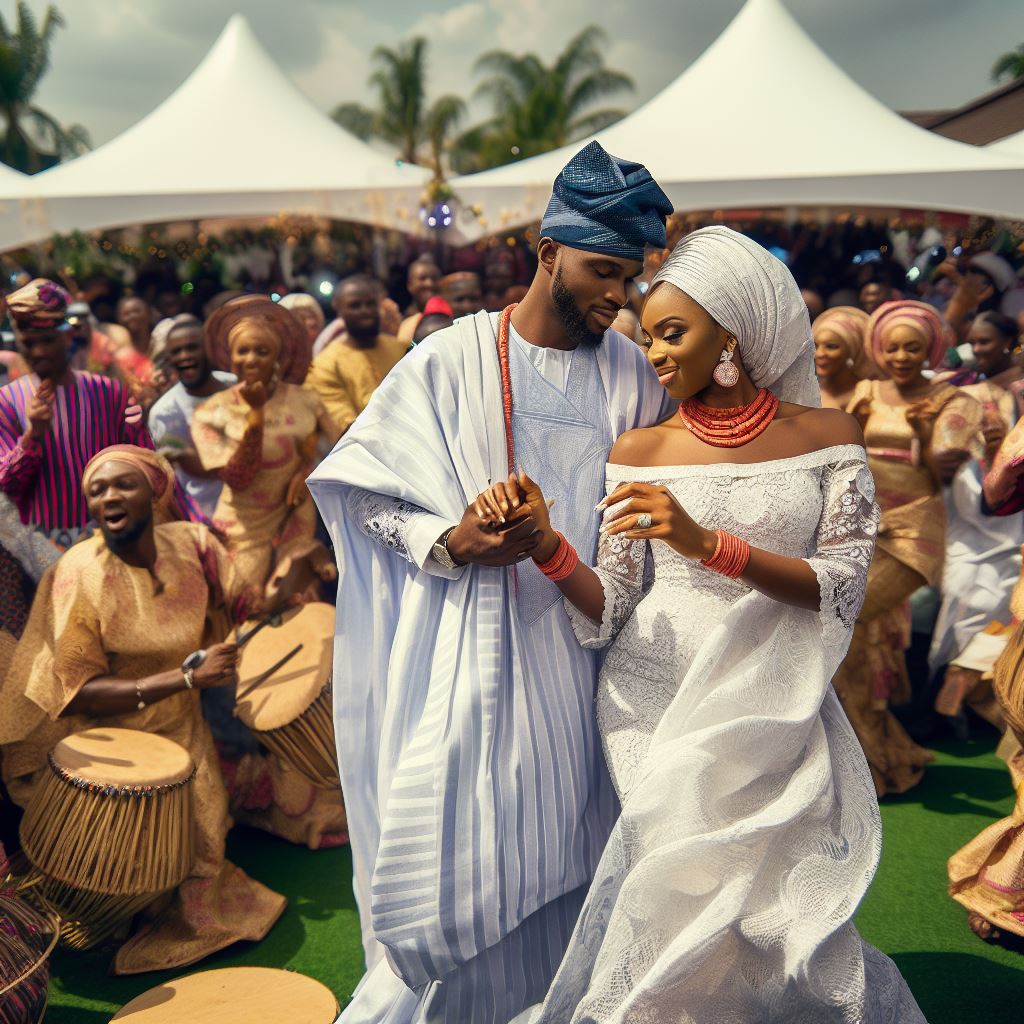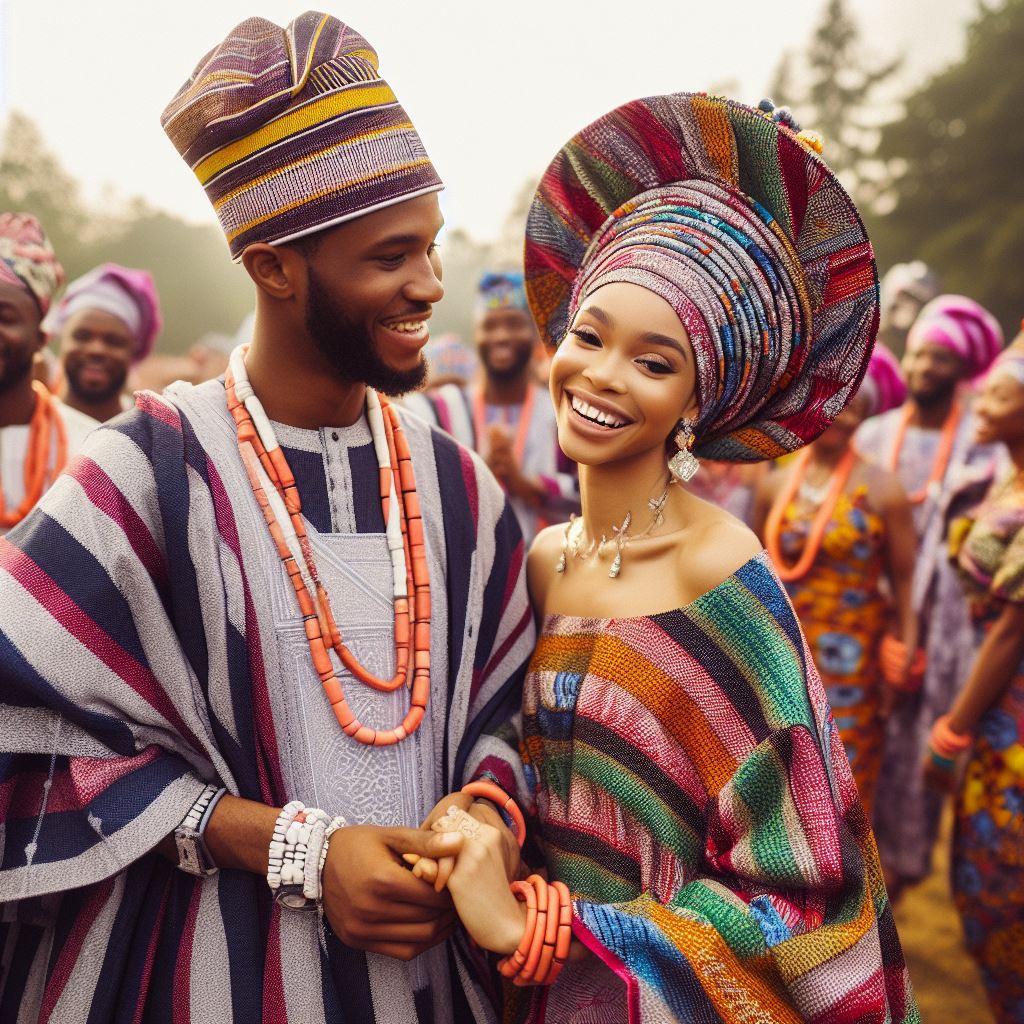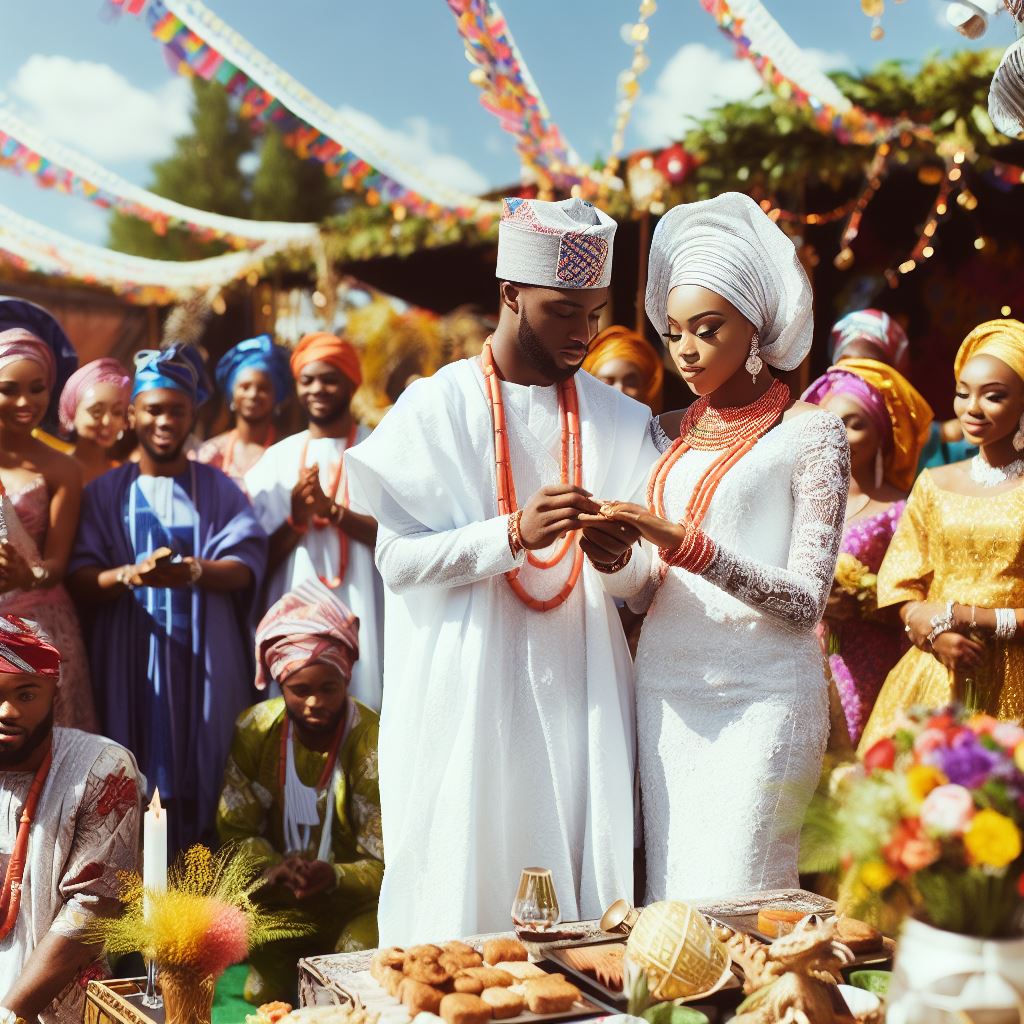Introduction
Marriage in Nigeria holds great cultural and legal importance, requiring an understanding of both perspectives. This article will discuss Cultural Vs Legal Marriage in Nigeria
Nigerian marriages encompass rich cultural traditions and customs alongside legal regulations.
Understanding both cultural and legal perspectives is vital to navigate the complexities of marriage in Nigeria.
The cultural perspective emphasizes family ties, ancestral heritage, and community involvement in the union.
On the other hand, legal aspects provide a framework for rights, obligations, and safeguards within marriages.
Neglecting either the cultural or legal perspective can lead to various challenges and misunderstandings.
By embracing both perspectives, individuals can honor their traditions while ensuring legal security and protection.
Cultural perspectives offer insights into rituals, ceremonies, and customs that shape matrimonial practices in Nigeria.
The legal perspective, on the other hand, ensures the recognition and validation of marriages under the law.
Failing to respect cultural practices can lead to strained relationships and resentment within families.
Ignoring legal requirements can result in the absence of legal protections and rights for spouses and children.
Balancing both perspectives allows individuals to uphold their cultural heritage while enjoying the legal benefits of marriage.
In general, understanding both cultural and legal perspectives is crucial for a successful and harmonious marriage in Nigeria.
By appreciating the significance of both aspects, couples can build a strong foundation for their union.
Cultural Perspectives on Marriage in Nigeria
- The importance of cultural practices and traditions in Nigerian marriages cannot be overstated.
- Various ethnic groups in Nigeria have their own unique customs and rituals associated with marriage.
- Popular cultural practices in Nigerian marriages include dowry payment, traditional wedding ceremonies, and marriage rites.
- Extended families and the larger community play a significant role in the marriage process in Nigeria.
- Religion also exerts a strong influence on marriage customs and traditions in Nigeria.
Marriage holds a central place in Nigerian culture, with its significance extending beyond the union of two individuals.
It is a celebration of the joining of two families and the preservation of cultural heritage.
Cultural practices and traditions in Nigeria reflect the country’s diverse ethnic groups.
Nigeria is home to over 250 ethnic groups, each with its distinct customs and rituals related to marriage.
These customs often symbolize the values, beliefs, and identity of a particular ethnic group.
For example, in the Igbo culture, the groom pays a bride price to the bride’s family, which serves as a sign of respect, appreciation, and commitment.
Traditional wedding ceremonies in Nigeria are vibrant and colorful events that showcase the richness of the country’s cultural diversity.
These ceremonies often involve elaborate attire, traditional dances, music, and feasting.
It is an opportunity for families and communities to come together and celebrate the couple’s union.
Marriage rites in Nigeria vary across ethnic groups and may involve several stages and rituals.
Read: Navigating Marriage’s Waters: Prayers for Nigerian Couples’ Milestones
Legal Perspectives on Marriage in Nigeria
In Nigeria, the legal framework governing marriages is outlined in the Marriage Act of 1990.
This act provides guidelines and regulations for individuals seeking to enter into a legal marriage.
The Marriage Act of 1990 and Its Implications
The Marriage Act of 1990 is a crucial piece of legislation that governs marriages in Nigeria.
It ensures that marriages are conducted lawfully and protects the rights and interests of all parties involved.
Different Types of Recognized Marriages under Nigerian Law
Nigerian law recognizes three main types of marriages: customary marriage, statutory marriage, and Islamic marriage. Each type has its own set of requirements and legal implications.
Legal Requirements for Each Type of Marriage
- Customary Marriage: For legal recognition, both parties in a customary marriage must be of marriageable age and give consent.
The local government or customary court typically registers the marriage.
- To legally recognize a customary marriage, both parties of marriageable age must provide consent and register it locally.
- Statutory Marriage: A statutory marriage requires that both parties be at least 21 years old and provide valid proof of age, such as a birth certificate.
The marriage must be registered with the appropriate authorities. - Islamic Marriage: In an Islamic marriage, both parties must be of the Islamic faith and have reached the age of puberty.
The marriage is often conducted under Sharia law and may need to be registered with the relevant Islamic authorities.
Legal Rights and Benefits of Being Legally Married
Being legally married in Nigeria grants spouses certain rights, benefits, and responsibilities.
These include inheritance rights, joint property ownership, and the ability to make legal decisions on behalf of one another.
Legally married couples are entitled to certain legal protections if their marriages end in divorce.
Both the government and society recognize and acknowledge the marriage, upholding the rights of both parties.
Understanding the legal framework is crucial to ensure marriages adhere to the law and protect everyone’s rights.
The Marriage Act of 1990 guides various types of marriages and their legal prerequisites, ensuring recognition and rights.
By understanding the legal framework, individuals ensure their marriages receive legal recognition and associated benefits.
Read: Top Marriage Counselors in Lagos: A Comprehensive Review
Challenges and Conflicts between Cultural and Legal Perspectives
In Nigeria, the clash between cultural and legal perspectives on marriage can lead to numerous challenges and conflicts.
These differences arise from deeply rooted traditions and the evolving legal landscape of the country.
Let’s explore some instances where these perspectives clash and the implications they have on Nigerian marriages.
Forced marriages, though illegal under Nigerian law, still occur due to cultural beliefs and practices.
The cultural perspective places emphasis on parental authority and the concept of arranged marriages.
However, legally, forced marriages are a violation of human rights and can have severe psychological and emotional consequences for those involved.
Child marriages pose another challenge, as they are deeply rooted in certain Nigerian cultures.
The cultural perspective justifies these marriages by considering them a way to maintain social norms and ensure financial security.
Legally, child marriages are prohibited and recognized as a violation of children’s rights, as it deprives them of education and exposes them to health risks.
Polygamy, while accepted in many Nigerian cultures, can create conflicts between cultural and legal perspectives.
From a cultural standpoint, polygamy is seen as a way to preserve family lineage and ensure social stability.
However, legally, it poses challenges such as inheritance disputes, unequal treatment of spouses, and economic strain on the family.
The conflict between gender equality and certain cultural practices is a significant issue in Nigerian marriages.
Addressing the complexities involves promoting awareness and education, challenging harmful cultural practices, and finding ways to reconcile cultural values with legal requirements.
In short, the clash between cultural and legal perspectives on marriage in Nigeria leads to numerous challenges and conflicts.
Forced marriages and child marriages continue to thrive despite legal prohibitions, while polygamy and certain cultural practices pose conflicts with gender equality.
Read: The Role of Tradition in Nigerian Marital Conflicts
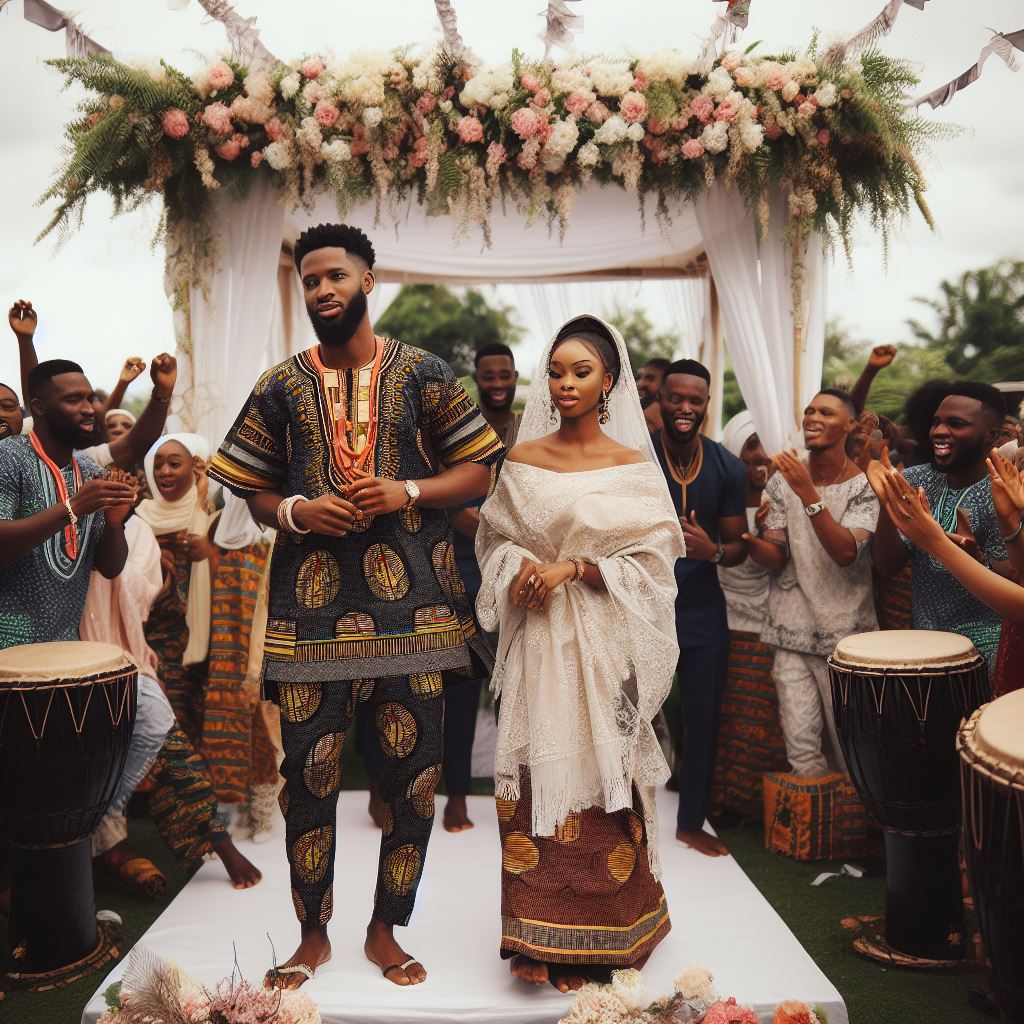
Finding a Common Ground
Ways to bridge the gap between cultural and legal perspectives on marriage in Nigeria
- Promote intercultural dialogue and understanding through community engagement programs.
- Encourage cultural exchange programs to enhance appreciation and respect for diverse marriage practices.
- Foster collaboration between cultural and legal institutions to develop inclusive policies that preserve traditions while ensuring legal protection.
The importance of education and awareness to promote understanding
- Establish educational campaigns that address misconceptions and stereotypes about different cultural marriage practices.
- Include comprehensive information about legal rights, responsibilities, and options in marriage counseling programs.
- Integrate cultural studies into school curricula to foster a deeper understanding and appreciation of diverse marital customs.
Advocate for the need to revise certain laws and cultural practices that may be harmful or discriminatory
- Collaborate with legal experts, cultural leaders, and human rights organizations to identify and amend discriminatory laws.
- Initiate discussions on harmful practices such as child marriage and dowry systems to protect vulnerable individuals.
The role of dialogue and mediation in resolving conflicts between cultural and legal perspectives
- Encourage open and respectful discussions involving both cultural and legal stakeholders to find common ground.
- Promote mediation techniques that consider cultural sensitivities while ensuring adherence to legal rights and protections.
- Establish dispute resolution centers that specialize in resolving conflicts arising from cultural and legal disparities.
The importance of respecting individual choices and rights in the context of marriage
- Raise awareness about the significance of consent and personal autonomy in marital decisions.
- Advocate for laws that protect individuals from forced marriages and promote their right to choose their partners.
- Educate communities about the importance of supporting individuals who may choose non-traditional marriage arrangements.
In closing bridging the gap between cultural and legal perspectives on marriage in Nigeria requires proactive measures.
By educating, dialoguing, and revising discriminatory practices, we can find common ground respecting cultural traditions and legal rights.
By promoting understanding and respect, Nigeria can create an inclusive society that celebrates the diversity of marital practices while ensuring equal protection for all individuals.
Read: Understanding Love Languages: A Guide for Nigerian Couples
Conclusion
On a final note, the blog post discussed the cultural and legal perspectives on marriage in Nigeria.
It highlighted the differences between these two viewpoints and how they impact the institution of marriage.
It emphasized the importance of acknowledging and understanding both perspectives to promote a harmonious society.
Recognizing the cultural and legal aspects of marriage is crucial in Nigeria, as it ensures that individuals are aware of their rights and responsibilities within their communities and under the law.
This knowledge helps to avoid misunderstandings and conflicts within marriages.
It is vital for readers to approach the topic with an open mind and appreciate the diverse cultural and legal contexts in which marriages take place.
By doing so, unity can be fostered, and relationships can flourish in Nigeria’s rich cultural tapestry.
Understanding both cultural and legal perspectives empowers individuals to make informed decisions about their marriages.
It establishes a balance between tradition and modernity, safeguarding the cultural traditions while integrating legal protections.
Embracing diverse cultural and legal perspectives on marriage in Nigeria not only promotes unity but also ensures the wellbeing and happiness of individuals and families.
It lays down the foundation for a harmonious society where different customs and legalities coexist peacefully.

